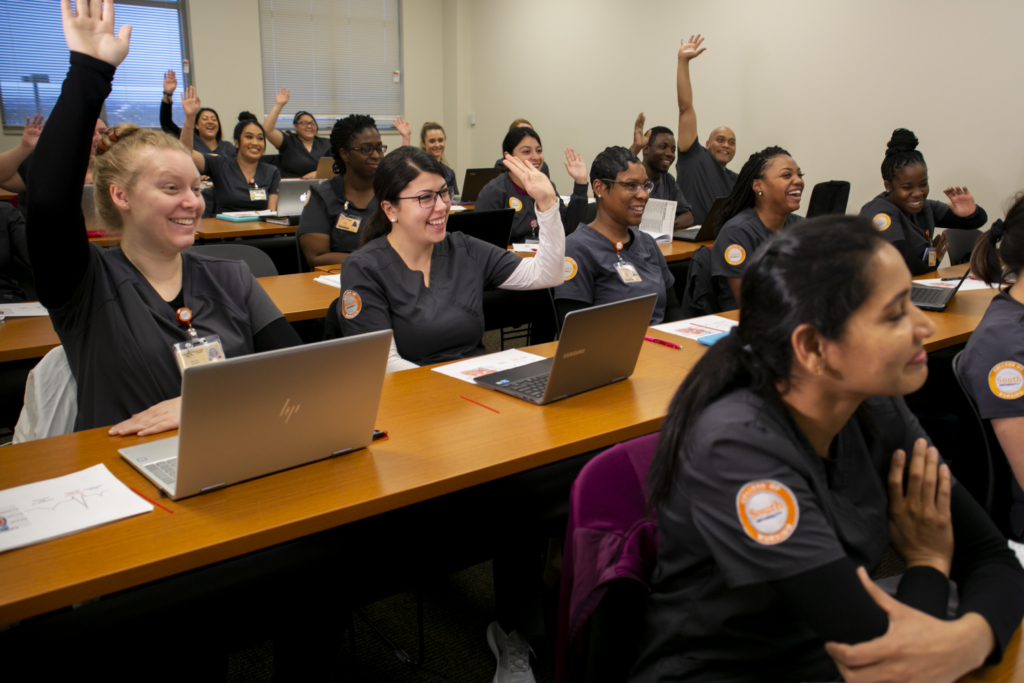
By Steven Yoho, Ph.D., Chancellor, South University
As the Chancellor of South University, I am privileged to observe firsthand the transformative impact our health sciences graduates have on their communities. In recent years, the need for skilled professionals in nursing, anesthesiology, pharmacy, occupational therapy, and physical therapy has surged dramatically. This growing demand, driven by an aging population and a wave of retirements among current healthcare workers, is not just a trend but a looming crisis that requires immediate and sustained action to prevent a nationwide healthcare disaster.
Understanding the Rapidly Growing Need
The U.S. population is aging at an unprecedented rate. According to the U.S. Census Bureau, by 2030, all baby boomers will be older than 65, meaning one in every five Americans will be at retirement age. This shift in demographics is increasing the demand for healthcare services, particularly in managing chronic conditions, rehabilitative care, and senior health. At the same time, many experienced healthcare professionals are reaching retirement age, exacerbating the need for more qualified individuals to meet the growing needs of our healthcare system.
Nursing as the Backbone of Healthcare
Nurses are the backbone of our healthcare system, providing critical care and support across various settings. The Bureau of Labor Statistics (BLS) projects a need for an additional 175,900 registered nurses each year until 2029 to meet healthcare demand and replace retiring nurses. This shortage threatens to undermine patient care quality and increase the burden on the remaining workforce, leading to burnout and reduced patient outcomes.
Anesthesiologists and Pharmacists are Critical Specialists
Anesthesiologists and pharmacists play indispensable roles in patient care. Anesthesiologists are essential in surgical procedures, pain management, and critical care. Meanwhile, pharmacists ensure safe and effective medication use, a cornerstone of modern healthcare. The American Association of Medical Colleges predicts a shortage of 86,000 physicians, including anesthesiologists, by 2036. Similarly, the demand for pharmacists is expected to rise, driven by the increasing complexity of medication therapies and pharmacists’ expanding role in patient care.
Occupational and Physical Therapy is Necessary for Enhancing Quality of Life
Occupational therapists (OTs) and physical therapists (PTs) are vital in helping patients recover from injuries, surgeries, and illnesses, enhancing their quality of life and independence. The BLS projects a 16% growth in demand for OTs and an 18% increase for PTs by 2029. This growth is fueled by the aging population, an increasing prevalence of chronic diseases, and the recognition of therapy’s importance in preventive and rehabilitative care.
A Looming Nationwide Crisis
The consequences could be dire if we do not address these workforce shortages. Longer patient wait times, increased workloads for existing healthcare professionals, and potential declines in the quality of care are just a few of the challenges we could face. The strain on our healthcare system could become unsustainable, particularly in underserved and rural areas where access to care is already limited.
South University’s Commitment to Solutions
At South University, we know our responsibility to address this looming crisis and are actively working towards a solution. Our College of Health Professions focuses on educating and training the next generation of healthcare workers through rigorous academic programs, hands-on clinical experiences, and a commitment to excellence. We are committed to being part of the solution.
- Innovative Curriculum and Training: We continually update our curriculum to reflect the latest advancements in healthcare. We designed our nursing, anesthesiology, pharmacy, occupational therapy, and physical therapy programs to give students the knowledge and skills necessary to excel in their fields. Through state-of-the-art simulation labs and partnerships with leading healthcare facilities, our students gain invaluable real-world experience.
- Expanding Educational Access and Diversity: We recognize the importance of diversity in healthcare. We designed our programs to be accessible to students from various backgrounds, and we actively foster an inclusive learning environment. By preparing our graduates to meet the needs of diverse patient populations, we are contributing to a more equitable and effective healthcare system.
- Lifelong Learning Support: Healthcare is an ever-evolving field. We offer continuing education opportunities for our alums and current practitioners to stay abreast of the latest developments and maintain their competencies. This commitment to lifelong learning helps ensure that our healthcare workforce remains adaptable and resilient.
- Community Partnerships and Outreach: We collaborate with healthcare organizations, community groups, and policymakers to address local and national healthcare needs. South University plays an active role in shaping the future of healthcare by participating in community health initiatives and proactively advocating for policies that support healthcare education and workforce development. We urge policymakers to recognize the urgency of this issue and work with us to implement effective solutions.
Final Thoughts
The growing demand for health sciences graduates is a looming issue that requires immediate and sustained action. At South University, we are dedicated to being part of the solution by educating highly skilled and empathetic healthcare professionals who are ready to meet the challenges ahead. Investing in education and training today can ensure a healthier, more resilient tomorrow for all. The time to act is now.
About Dr. Yoho
Dr. Steven Yoho, PhD (Ex Officio), has been a prominent figure at South University since he joined as Vice Chancellor for Administration and Strategy in April 2018 before stepping into the role of Chancellor in July of the same year. His leadership journey at the university includes serving as Dean of the College of Business from 2007 to 2008, Vice Chancellor for Academic Affairs from 2008 to 2013, and Campus President from 2013 to 2018. Before his extensive career in higher education, Dr. Yoho gained valuable experience in manufacturing management as a plant manager.
Dr. Yoho holds a Ph.D. in Organizational Behavior from Ohio University, a Master of Science in Management from West Virginia University, and a Bachelor of Science from Oklahoma Christian University.